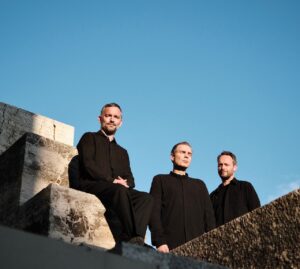 Alejandra Robles is from Puerto Escondido province of Oaxaca in Mexico. From a Mestizo background, Robles identifies as afro-Mexican and from listening to her second album titled La Morena one can hear the weight that this identity bears. She dedicates her second album to the “people of the sea, those who walk over the sand, carrying the weight of discrimination due to the color of their skin.” The songs on the album carry titles such as ‘Paloma Morena’ (black dove), ‘Angelitos Negros’ (little black angels), Navidad Negra (black Christmas), La Llorona (the cryer), and finally the album title, ‘La Morena’ (the brown girl).
La Morena, both song and album are about Robles, her origins as Afro-Mexican and those of the people from the coastal region from which she hails. On the album there is a song also titled La Morena which tells the tale of a siren whose voice can be heard across the sea, but only by those who have loved and lost. Yet, this is not only a tale of lovers, but also of family members who are no longer with us. This song is a duet between Robles and Ramon Gutierrez from the group Son de Madera. During the course of the song Robles and Gutierrez duel back and forth telling this tale of origin and loves lost. The duelling nature of the song almost allows for two different stories to be told, despite the fact that they are both singing the same lyrics.
Robles says that she always knew her vocation would be one of interpreting the beauty of those that guard traditional music, particularly the dances and traditions of the coastal area of which she is from. Robles’ music consists of various types of sound such as Soneros out of Veracruz, which are best described as vocal improvisers and various different Caribbean rhythms. These sounds incorporate instruments that are rooted in the cultures of the Mexican South Pacific, across Central America, Peru and Colombia.
Trained in dance, Robles is said to “fuse the sentiment of her afro-Mexican ancestry, with the enchantment of Caribbean rhythms that range from bolero to rock, passing through bachata, cumbia, currulao, waltz, rap and classical music.”
All of Robles’ songs are in Spanish, yet whether you understand the lyrics or not, there is a poignancy and spirit that is transmitted despite one’s lack inability to understand the exact words.
Robles is taking her talents in a tour across Canada that will privilege us with a stop at the Vancouver Folk Music Festival July 13-15. For more details: http://thefestival.bc.ca/
Alejandra Robles is from Puerto Escondido province of Oaxaca in Mexico. From a Mestizo background, Robles identifies as afro-Mexican and from listening to her second album titled La Morena one can hear the weight that this identity bears. She dedicates her second album to the “people of the sea, those who walk over the sand, carrying the weight of discrimination due to the color of their skin.” The songs on the album carry titles such as ‘Paloma Morena’ (black dove), ‘Angelitos Negros’ (little black angels), Navidad Negra (black Christmas), La Llorona (the cryer), and finally the album title, ‘La Morena’ (the brown girl).
La Morena, both song and album are about Robles, her origins as Afro-Mexican and those of the people from the coastal region from which she hails. On the album there is a song also titled La Morena which tells the tale of a siren whose voice can be heard across the sea, but only by those who have loved and lost. Yet, this is not only a tale of lovers, but also of family members who are no longer with us. This song is a duet between Robles and Ramon Gutierrez from the group Son de Madera. During the course of the song Robles and Gutierrez duel back and forth telling this tale of origin and loves lost. The duelling nature of the song almost allows for two different stories to be told, despite the fact that they are both singing the same lyrics.
Robles says that she always knew her vocation would be one of interpreting the beauty of those that guard traditional music, particularly the dances and traditions of the coastal area of which she is from. Robles’ music consists of various types of sound such as Soneros out of Veracruz, which are best described as vocal improvisers and various different Caribbean rhythms. These sounds incorporate instruments that are rooted in the cultures of the Mexican South Pacific, across Central America, Peru and Colombia.
Trained in dance, Robles is said to “fuse the sentiment of her afro-Mexican ancestry, with the enchantment of Caribbean rhythms that range from bolero to rock, passing through bachata, cumbia, currulao, waltz, rap and classical music.”
All of Robles’ songs are in Spanish, yet whether you understand the lyrics or not, there is a poignancy and spirit that is transmitted despite one’s lack inability to understand the exact words.
Robles is taking her talents in a tour across Canada that will privilege us with a stop at the Vancouver Folk Music Festival July 13-15. For more details: http://thefestival.bc.ca/










